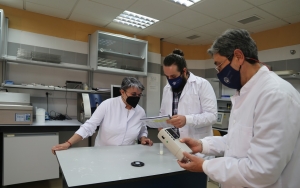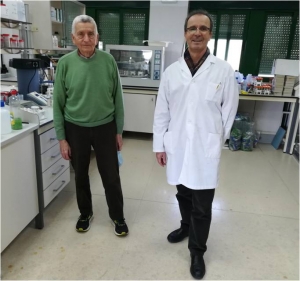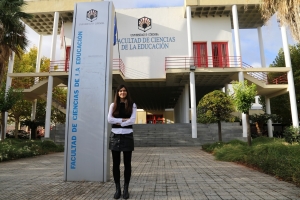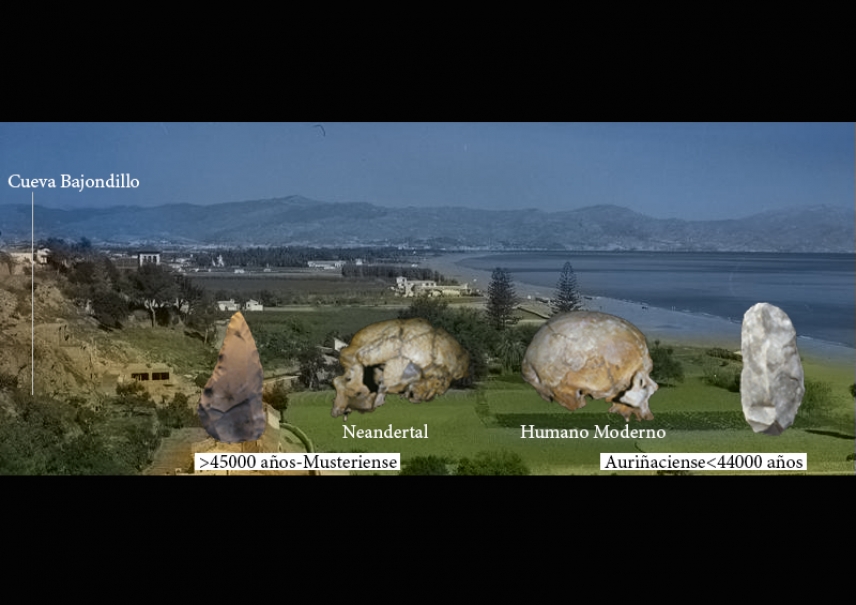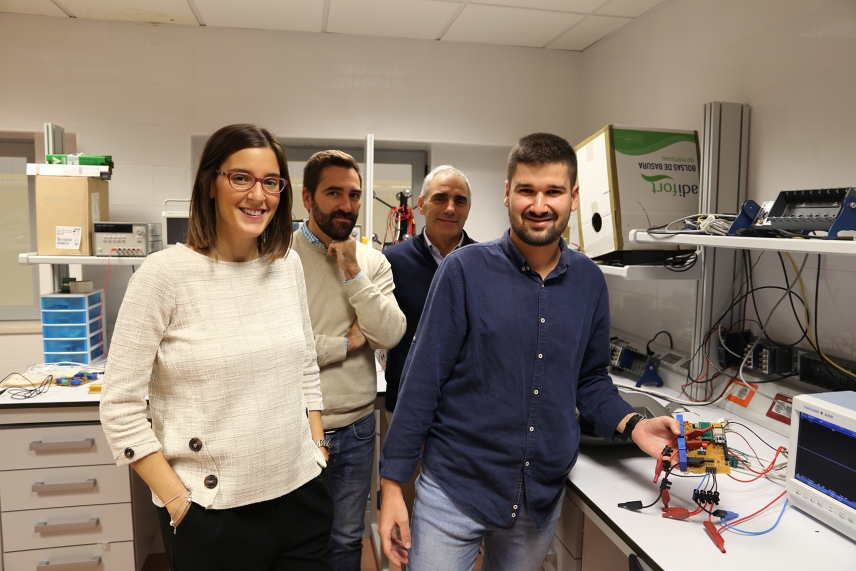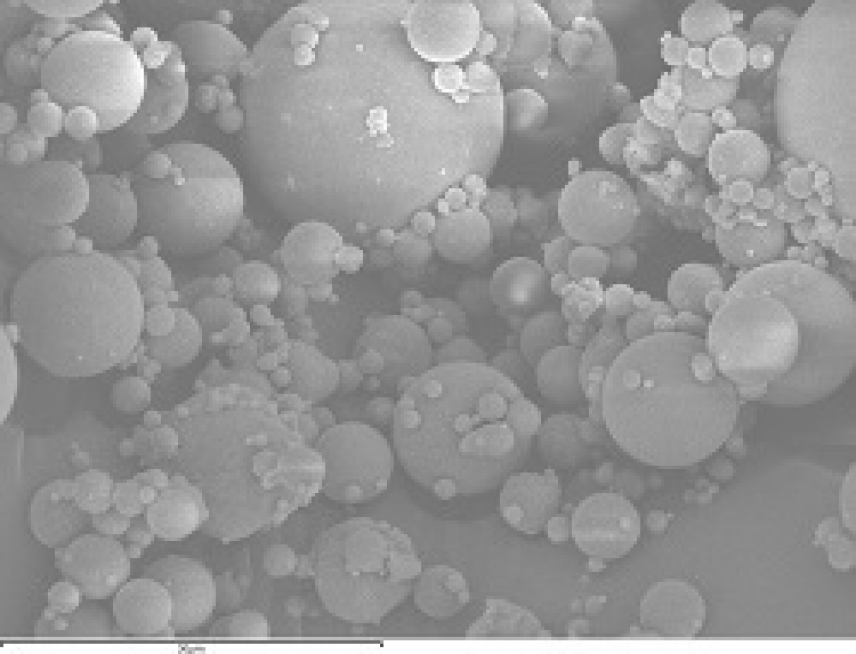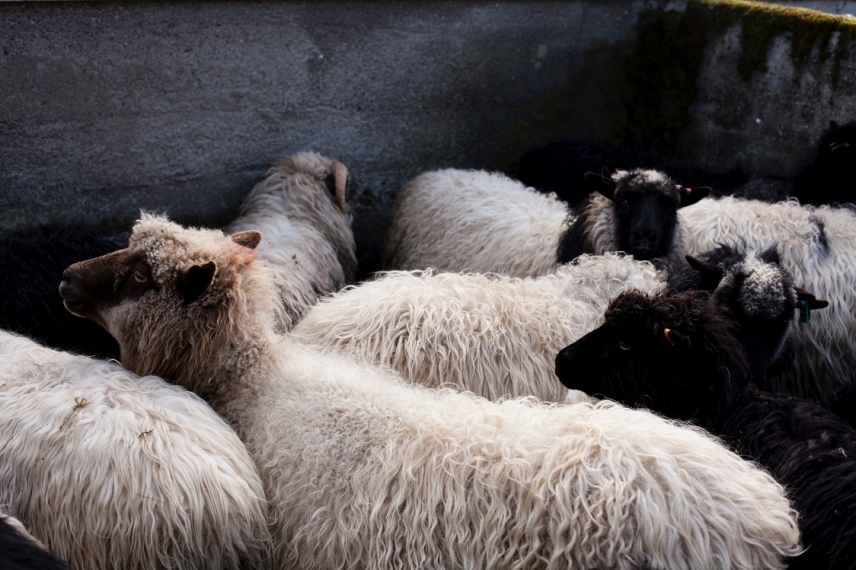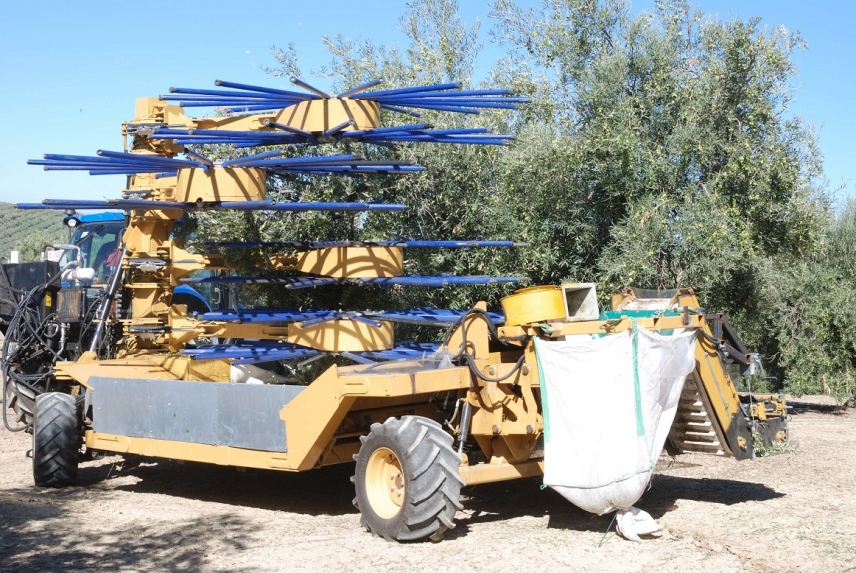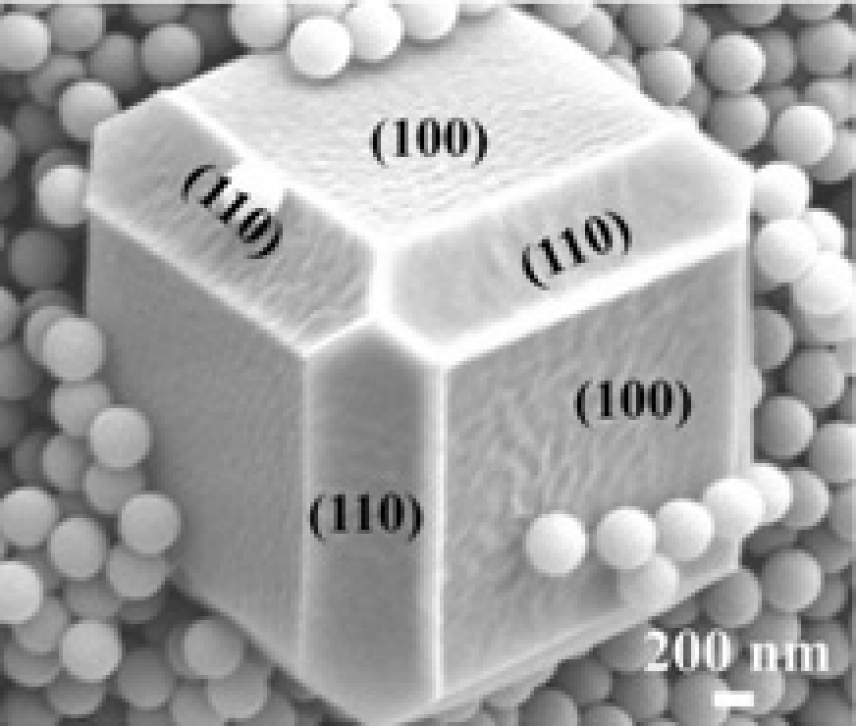The Science of Turning Milk into Cheese
A study by the UCO and the University of Leon reveals that milk pH is a characteristicthat should be incorporated into the improvement programme for the enhancement of the Churra sheep's milk used for cheese production
Phosphorus conditions the formation of iron oxides, keys to agronomic and environmental soil properties
A paper from the Agronomy Department at the University of Cordoba and Southwest University (China) has advanced in the understanding of influencing factors in the formation of iron oxides that affect a soil's ability to be more agriculturally efficient
In pursuit of the mechanisms that explain anxiety
A University of Cordoba researcher analyzed how metacognitive beliefs and emotional dysregulation determine symptoms of Generalized Anxiety Disorder (GAD)
Modern humans replaced Neanderthals in southern Spain 44,000 years ago
The University of Cordoba, in collaboration with the University of Granada, participated in an international study published today in the journal Nature Ecology and Evolution, proving that Neanderthals were replaced by modern humans in southern Iberia 5,000 years before than previously thought
A study carried out in Bajondillo Cave (in the town of Torremolinos, in the province of Malaga) by an international team made up of researchers from Spain, Japan and the U.K. revealed that modern humans replaced Neanderthals 44,000 years ago. This study, published today in the journal Nature Ecology and Evolution and in which University of Cordoba and University of Granada scientists participated, demonstrates that replacing Neanderthals for modern humans in southern Iberia is an early, not late, occurrence, in the context of Western Europe. That is to say it happened 5,000 years before previously thought up until now.
Smart appliances learn how to self diagnose
A University of Cordoba research group has developed a low cost sensor to custom measure the power quality of the structure in each device
More and more facilities are implementing management systems under the industry 4.0 paradigm based on smartness and efficient management. In particular, appliances come with an increasing amount of functions that make household chores easier: refrigerators that regulate their own temperatures or predict which foods need to go on the shopping list. But, what if, in addition to these features, appliances were able to measure the quality of the power they are supplied with? This would allow for self diagnoses, knowledge about what happened in the case of malfunction and the prevention of future malfunctions.
Concrete made from coal ashes proves to be just as resistant as concrete from quarry aggregates
A University of Cordoba research team in partnership with the University of Navarra successfully uses waste from thermoelectric plants instead of natural resources to make concrete for structural use and demonstrates that it has the same characteristics for construction.
Overexploitation of quarries in order to obtain sand and gravel needed to produce concrete is currently one of the most challenging environmental issues. Rocks are not inexhaustible, though they may seem. So, for years the scientific community has been searching for a way to manufacture concrete without depleting the Earth’s crust. This is done by approaching the issue from different perspectives. This is the case of two University of Cordoba research teams that worked together in order to obtain a material that is just as sturdy and durable, but more sustainable. This was done by chemists and engineers working closely together.
In pursuit of a supersheep
A research group at the University of Cordoba Genetics Department has analyzed gene variation in five Spanish sheep meat breeds as the first step to increase profitability in livestock
How could a sheep farmer’s job be made easier if they had a tool to choose the meat breed best suited to their needs beforehand? Much money and time would be saved by using a panel of markers to select a breed with genes associated with meat production. Finding an efficient and cost effective way to do so led the AGR-2018 “Improving and conserving genetic resources of domestic animals” research group to count sheep and above all, to analyze the genetic variability of their RNA (ribonucleic acid).
A new harvester decreases the cost of olive picking in traditional olive groves
The University of Cordoba Mechanization and Rural Technology research group designed a harvester that improves the profitability of traditional olive farming
Productive traditional olive groves, which make up 70% of Andalusian olive farming, are in a complicated situation in terms of financial sustainability. The lack of mechanization so vital to picking olives has made new already-mechanized plantations such as intensive and superintensive olive groves surpass traditional olive groves, which still spend 40% of their harvesting budgets on picking.
Porous materials make it possible to have nanotechnology under control
A University of Cordoba research team is able to stabilize different metallic nanostructures by encapsulating them in porous monocrystalline materials
Half metal, half organic structure, like Robocop himself, is the material known as MOF, short for Metal Organic Framework. MOF has been developed by scientists and applied to a myriad of products from sorbents to batteries for electronic devices. This material emerged from the nanotechnology revolution that turned material design upside down and facilitated the improvement of chemical processes. MOFs are a new organic and inorganic hybrid material made up of metallic nodes and organic links characterized by their porosity, that is to say, by the intermolecular spaces that it is comprised of.
How do African air masses influence olive-pollen allergy levels?
A study by researchers at the University of Córdoba shows how the arrival of African air masses at high altitudes affects olive-pollen transport in Andalusia
Olive pollen is amongst the most widespread airborne pollens in southern Europe; its frequency, coupled with an intense flowering regime, gives rise to a high incidence of allergies.Research into the factors governing airborne pollen counts and their behaviour is increasingly playing a key role in improving the quality of life of those sensitive to olive -pollen allergens.


